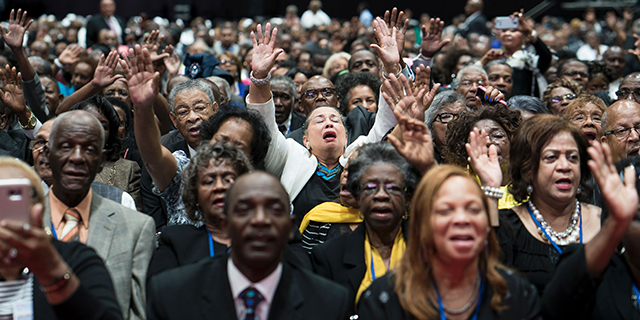I am a product of my culture – born and raised in a predominantly white suburban town, went to a predominantly white evangelical church, attended a predominantly white evangelical Christian college, and served at a predominantly white suburban church for 5 years. I could be a poster boy for white evangelicalism, if they had posters and needed boys to put on them. For most of my life, I’ve been thankful for the ways evangelical culture has shaped, molded, and formed me. But this week I realized how stunted my growth has actually been.
David M. Schell articulated it well in his recent post While You Were Talking About Gungor. He noted how many white prominent evangelicals were discussing Mark Driscoll’s removal from the Acts 29 network, or Gungor’s biblical orthodoxy, or leaving tributes for Robin Williams. All the while, a man was shot in Ohio for holding a toy gun and riots broke out in Ferguson in response to Michael Brown’s death.
When I read Schell’s blog, I was indicted. I haven’t thought much about recent events. I don’t know what to think. I can give a clear and well-reasoned argument for how a seeker-sensitive model for church growth actually undermines itself. I have numerous reasons for why I think churches should stop watching video sermons during Sunday morning worship. But I don’t know how to think about racism as it exists today. When I hear the story of Michael Brown being shot, I never, for a moment, am afraid that it might happen to me. I’m not aware of how African-American culture perceives evangelicalism. I don’t even think I could pinpoint the subtle ways I perpetuate racism. I might even be doing that in this post. I don’t know.
For this, I am sorry. I don’t want to keep being ignorant. I, along with many others, need to change.
Schell, at the end of his post, linked to Christena Cleveland and her list of 25 bloggers of Color that you should be reading. As I scrolled through the list of names, I recognized one. 1 out of 25. Not a good ratio. In light of this glaring personal deficiency, I plan to start following some of these blogs, to be challenged by them, receive new perspectives from them, and ultimately to stand in solidarity with them. They are my brothers and sisters in Christ – I don’t want our unity in Christ to be merely a theological truth, but one that transcends culture and race.





1 Comment
Leave your reply.